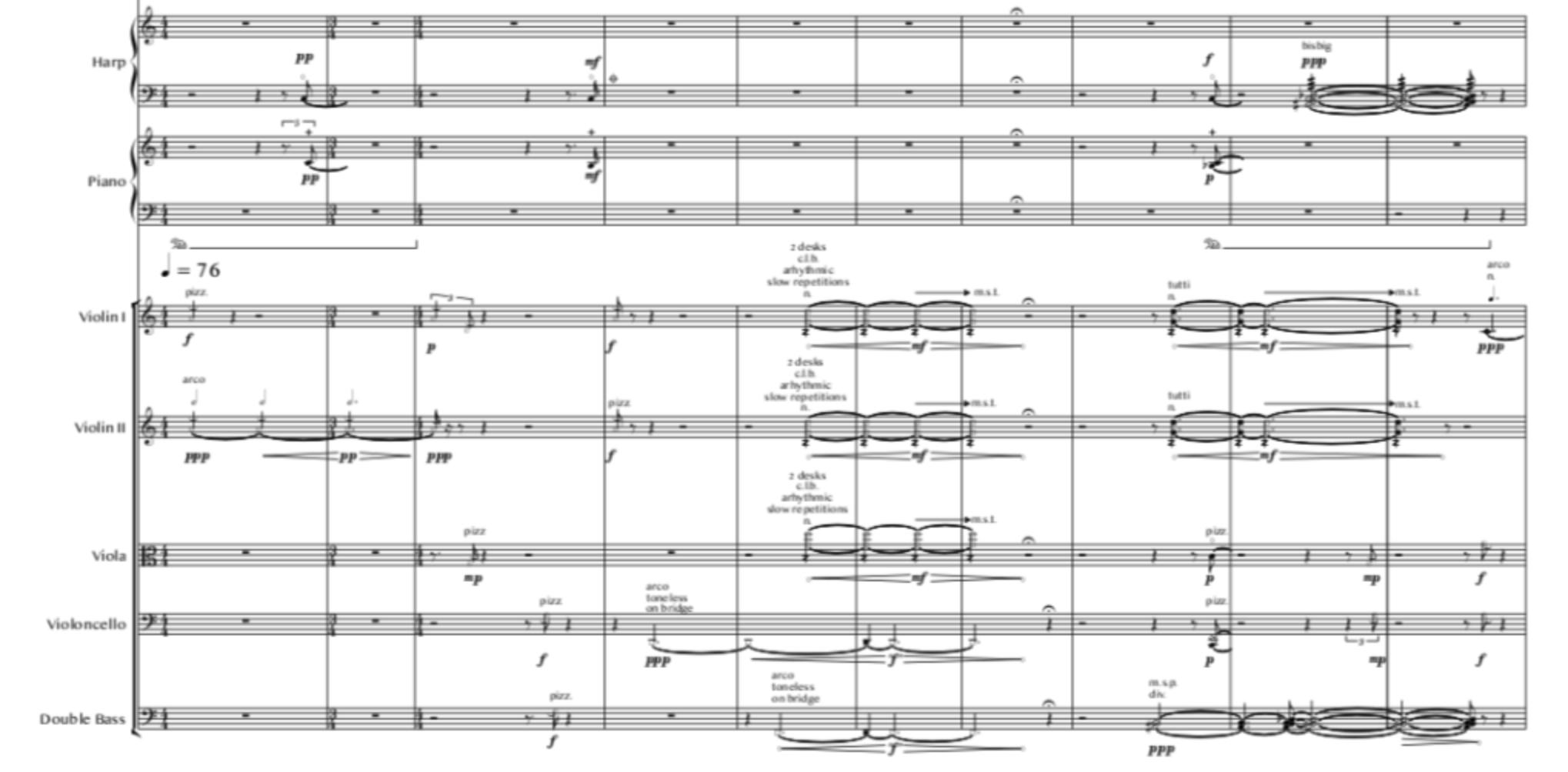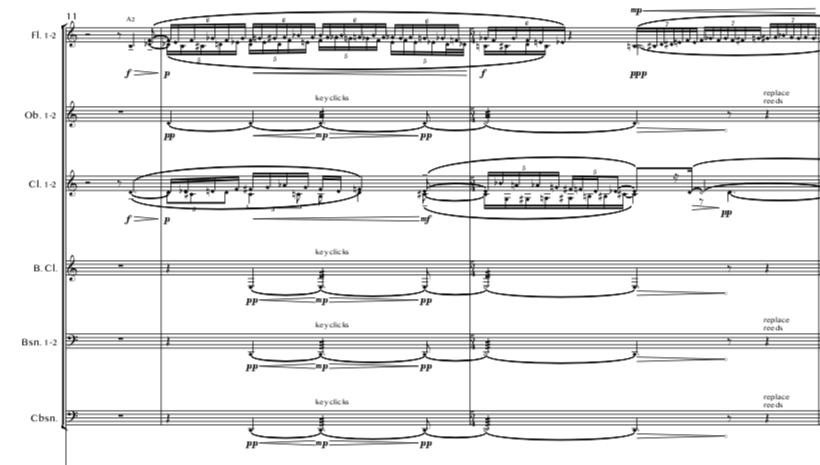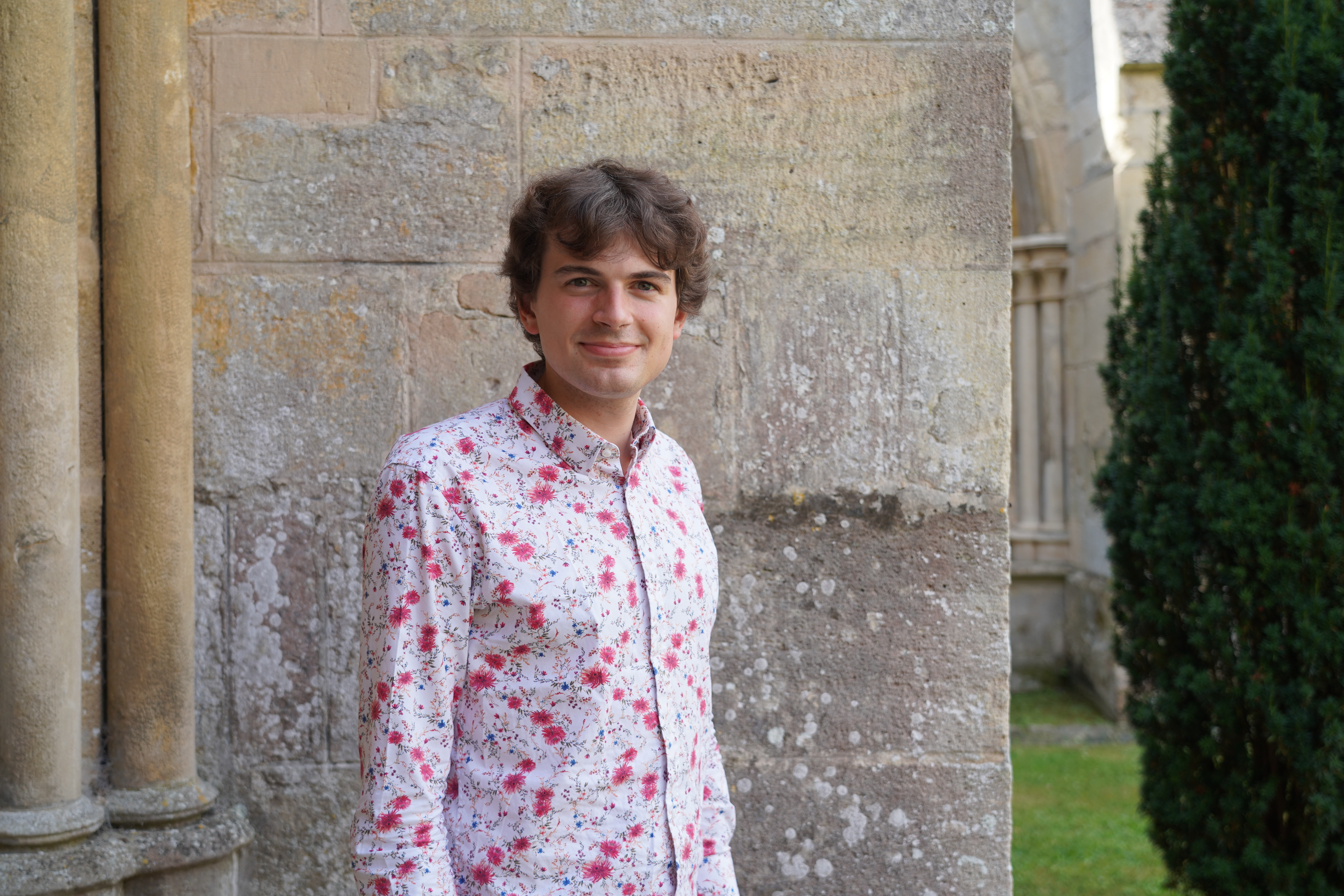Nathaniel Otley is this year's NZSO National Youth Orchestra Composer in Residence. His new work the convergence of oceans will premiere on 30 June at the Michael Fowler Centre in Wellington. SOUNZ caught up with Nathaniel to find out more about his new work.
Your piece for the NYO is titled the convergence of oceans. Can you tell us a bit about what this means to you and how this convergence is realised musically throughout the piece?
I often find myself drawn to ideas, phrases, and words that at first may seem a little mundane but when you dig beneath the surface are actually full of varied and vibrant potential. My interest in convergence is certainly an example of this, as it began as a fairly literal interest in oceanic convergence but quickly grew to encompass a sprawling and engaging array of ideas including both how sound converges in an orchestral context, as well as how messy and elusive oceanic convergence is in practice, something that I attempt to engage with within my work.
Examining convergence was also particularly applicable for this piece given the nature of the National Youth Orchestra course which itself is a convergence of some of the country's most exciting young musical talent. I wanted to write a piece that had resonance with the 2023 iteration of this particular orchestra, a tricky proposition given the piece had to be written before the players themselves were selected, but letting the piece grow out of this idea of convergence to me seemed to be a method through which this might be achieved in a meaningful way.
On a more technical level varying forms of convergence occur across the piece on both broad structural and more granular levels. On a macro level there are several larger sonic zones that gradually converge together as the piece moves in time while on a smaller scale the sounds, motifs and sonic identities of instruments are constantly converging, separating and reconverging within the flow of the piece.
Your previous pieces for orchestra have had ecologically-themed titles (biosphere degradation; detritus) and you have recently completed a Masters at the Sydney Conservatorium that continues this exploration of ecological thinking in your compositional practice. What role do you feel music has to play alongside the current global environmental situation?
A concern with the ecological is something that has been incredibly important to my work over the last several years. This grew out of several explicitly environmental works I wrote in 2019 including biosphere degradation and ...dimension of loss into my Masters research at the University of Sydney where I looked at using ideas of ecological thinking to embed these concerns in my artistic practice in a more meaningful way. At its most basic, ecological thinking fosters and encourages an awareness of interconnectivity and the potential of the sprawling webs of interconnectivity that we all inhabit in our lives. As such, within my music, I try to be hyper-aware of the many ways in which I am fostering interconnective relationships within my music. These can be those that are the core of music making: performer-composer, performer-instrument, performer-audience, audience-composer etc., but also can be in areas that connect my music beyond the concert hall to the wider world. To give one example, the percussionists in the convergence of oceans each play a set of micropercussion made up of a number of objects one might find on the coast of Aotearoa, bringing a tangible connection to the ocean and the shoreline into the concert room and fostering that connection in a more meaningful way than having the oceanic connection as something purely abstract or confined to the title of the piece would otherwise allow.
As to the broader meaning of engaging these ideas in my music I personally try not to get too caught up in whether my music can have tangible political and/or social consequences but what I do think writing music about these issues does have is the potential to resonate meaningfully and emotionally with people who share these concerns. We are increasingly seeing how closely tied ecological issues are to just about any event, situation, or place and ecological thinking for me is a way to realise this holistic presence and interconnectedness within my work.

At the end of June you will have the opportunity to work with the NYO over the course of a week! What are you most looking forward to during this time?
I'm incredibly excited to have the opportunity to work with this year's National Youth Orchestra. Working with a full symphony orchestra is always incredibly exciting and rewarding and I'm especially thrilled for this opportunity to work with so many of the country's finest young musicians as they put together what is a great programme. The opportunity to work with conductor Giancarlo Guerro is also incredibly exciting and I can't wait to see what he will bring to the piece as well. As a composer you always get so much out of working with musicians and to have the opportunity and time over the week-long NYO course to really explore and find the identity of the piece properly is also such a privilege.
Are there any techniques in this piece that you are trying out for the first time? What is the impetus for you behind developing new ways of producing sound?
There are a number of non-standard ways of producing sound within the the convergence of oceans but in this particular piece there aren't any extended techniques that I haven't tried out before in some capacity, whether in previous orchestral pieces or in smaller chamber contexts. Because of this, the piece instead tries to find new blends, ways, and contexts in which to engage these techniques that in turn creates vibrant sonic textures in what has been a very enjoyable process of exploration. To me this sort of exploration is more rewarding and leads to more genuinely novel sound worlds than getting hung up on any need to find 'new' techniques, as the general rule with these things is that there is a 99% chance if you think you've found a new technique, you haven't, you just haven't done enough research. This realisation however is actually quite freeing as you're not trying to revolutionise instrumental technique with every piece you write (which is practically impossible) but rather you're exploring these techniques and sounds to create a more personally resonant syntax and synthesis of them. It then becomes within these blends of sounds that the identity of a particular piece begins to take shape in an interesting and internally coherent manner, which I think (hope?) is what has happened in the convergence of oceans.

What would you like the audience to take away from this performance?
I would hope that they come away having experienced a work that is both moving but also challenging and questioning. There are (I think) moments of real beauty and fragility within the piece if not in a more familiar Elgar Nimrod (which is in the second half of the concert) sort of way but I think there is a tension to the beauty of the fragile textures that inhabit the piece in that they can at any time inflect in often quite unpredictable ways. A similar, fragile texture, for example, can just as easily lead to something stable and harmonious as it can to something more concerning and sinister, a characteristic that in many ways mirrors the ocean itself, which can change from serene and calm to stormy and dangerous very quickly. Even if the broader compositional language might not be an individual audience member's cup of tea I do hope they can find something of interest in the way these textures and timbres unfold over time.
Where do you think the future of instrumental composition is leading?
I can only speak for myself on this front and as such the most honest answer I can give is I don't know and I think the beauty of these things is that they are inherently unpredictable. It would certainly be easy to spend a lot of time fixating on trying to pre-empt future trends but for me personally it is a much more rewarding use of time to just explore what I find interesting and work with people who appreciate my work and challenge me to be better in what I create, so that's largely what I do. That is absolutely not to say I don't follow and find all the new and innovative work being done both here in Aotearoa and abroad fascinating and exciting and try to learn as much as I can from it, but rather that things such as the future of instrumental composition are dependent on so many complex and interconnected factors that predictions are close to impossible to make accurately.
